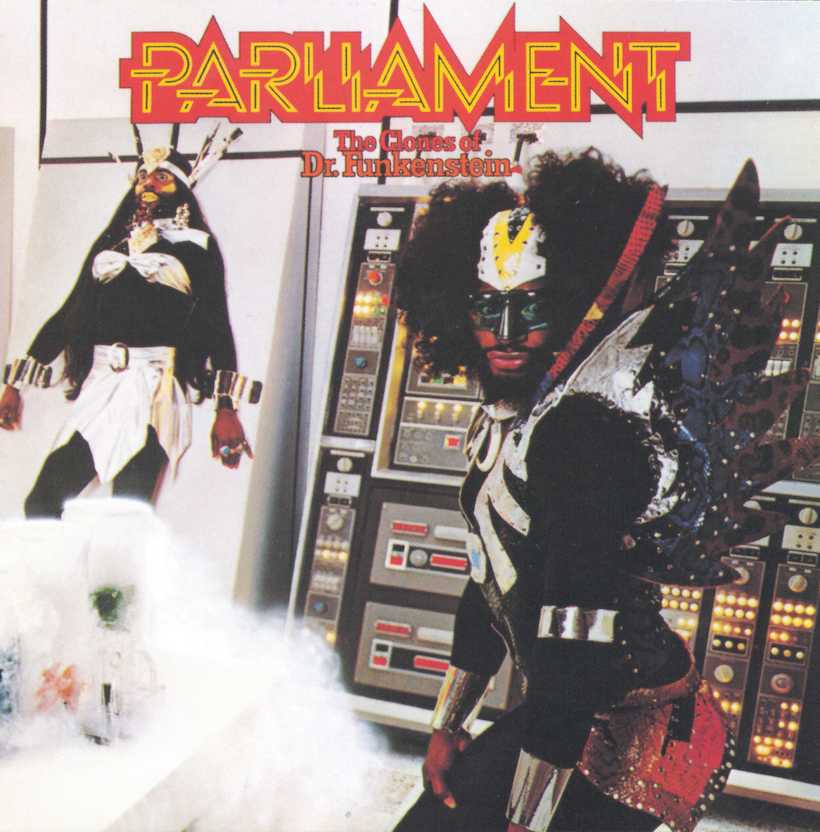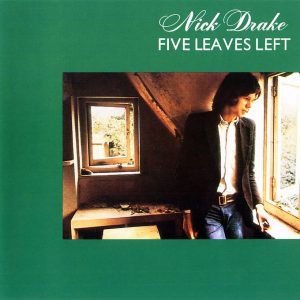In an age when funk was ubiquitous as an expression of Black popular music, George Clinton and Parliament reigned supreme as its quintessential representatives. Wielding a rare combination of unbridled, free-form musicality; an Afrofuturism ethos; a critique of the American social order; and humor, Parliament was almost peerless within the pantheon of funk music.
Listen to Parliament’s The Clones of Dr. Funkenstein on Apple Music and Spotify.
Released in September 1976, less than a year after the critically acclaimed and commercially successful Mothership Connection, The Clones of Dr. Funkenstein is another masterpiece in Clinton’s canon and traveled deeper into the mythology of P-Funk. Influenced by science-fiction, George Clinton was the ringleader of an intergalactic band of space funkateers that descended upon planet Earth to “blow the cobwebs out your mind.”
The premise of Clones was this: Dr. Funkenstein’s agent, Starchild, was responsible for carrying the funk down to the mere mortals on Earth on Mothership Connection, now he’s returned to his lab to create clones to fulfill his mission.
Featuring arrangements by keyboardist Bernie Worell and former James Brown musical director, trombonist Fred Wesley, The Clones of Dr. Funkenstein also enlisted a cast of virtuoso musical titans that included saxophonist Maceo Parker, bassist Bootsy Collins, Rick Gardner, guitarist Garry Shider, bassists Michael Hampton, and guitarist/lead singer Glen Goins. This incarnation of Parliament’s ensemble is arguably one the most renowned in the band’s history.
The opening salvo of the album is the haunting “Prelude,” which sets the tone with this audacious pronouncement: “There in these terrestrial projects it would wait, along with its co-inhabitants of kings and pharaohs, like sleeping beauties with a kiss that would release them to multiply in the image of the chosen one: Dr. Funkenstein. And funk is its own reward.” This is the mission statement before the outer-space adventure of Clones commences.
The heavy groove of “Gamin On Ya” captures the band funking at their best. With a catchy hook and an infectious vamp over a head-nodding instrumental, “Gamin On Ya” is a tour de force courtesy of the Horny Horns.
On “Children Of Production,” Parliament lays out the rationale for Funkenstein’s cloning experiments. Utilizing the classically trained ear of keyboardist and arranger Bernie Worrell, along with Bootsy Collins’ groove-heavy, intergalactic bass lines, “Children of Production” highlighted the nuances of Parliament’s adroit musicianship, which was often overshadowed by their ambitious concepts. Wesley’s free-ranging horn solos fuse with gospel-inspired three-part harmonies for a symphonic funk masterpiece.
As free-flowing, hilarious, and unorthodox as they were, Parliament’s musical mastery was second to none. As a testament to their enduring influence, Atlanta dynamic duo Outkast later followed the P-funk blueprint by sampling “Children of Production” on their hit, “Southernplayalisticadillacmuzik.”
From start to finish, The Clones Of Dr. Funkenstein is packed with jams in which Parliament flexed their versatility. If you thought they would completely abandon their signature, free-flowing, improvisational compositions, think again.
The sultry, six-minute slow jam titled “I’ve Been Watching You (Move Your Sexy Body)” reveals their romantic side, an aspect of Parliament that is often overlooked. While they were known for their outlandish wardrobes and larger-than-life personas, when the time called for it, P-Funk still knew how to get in the mood.
Following up a juggernaut like Mothership Connection was a tall order, to say the least, but Parliament was up for the task. They refused to shrink under the weight of their previous success and instead, doubled down on their conceptual approach by taking listeners even deeper into the P-Funk cosmology.
The Clones Of Dr. Funkenstein remains a timeless album because not only did it push the boundaries of funk and popular Black music upon release, it later became a template for rap music to build upon. From NWA to Dr. Dre, Snoop Dogg, and countless others, there is no G-Funk without P-Funk.




